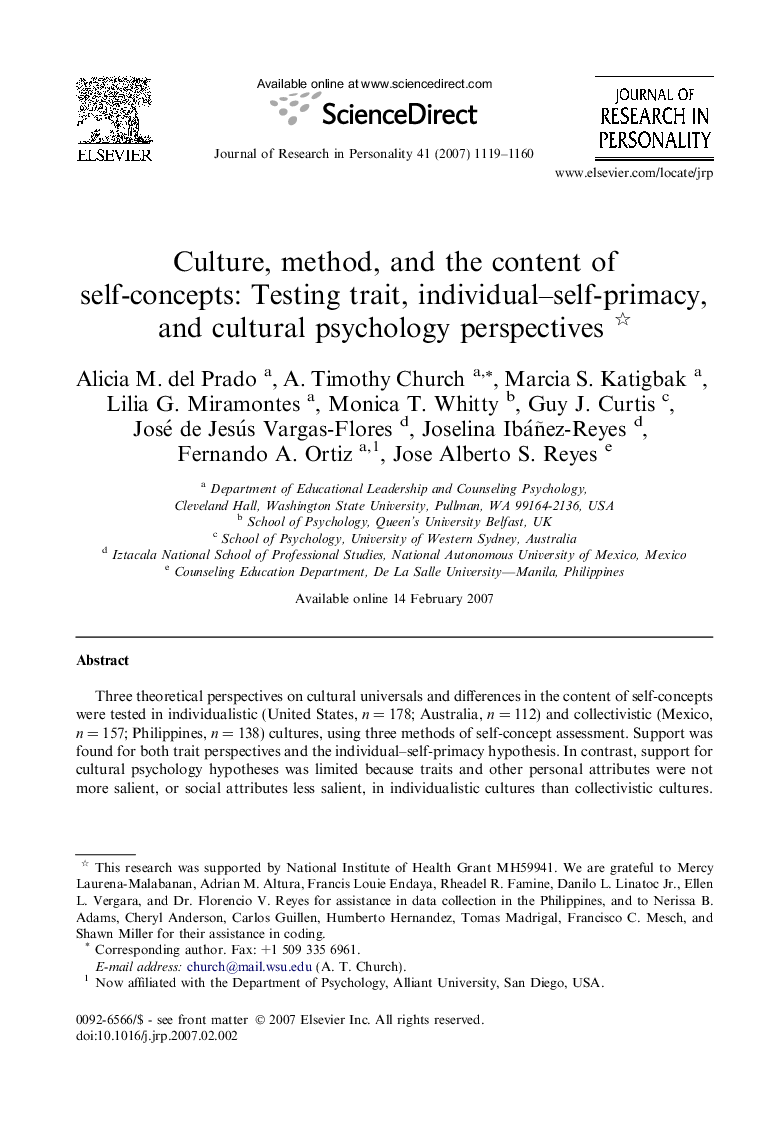| Article ID | Journal | Published Year | Pages | File Type |
|---|---|---|---|---|
| 951936 | Journal of Research in Personality | 2007 | 42 Pages |
Three theoretical perspectives on cultural universals and differences in the content of self-concepts were tested in individualistic (United States, n = 178; Australia, n = 112) and collectivistic (Mexico, n = 157; Philippines, n = 138) cultures, using three methods of self-concept assessment. Support was found for both trait perspectives and the individual–self-primacy hypothesis. In contrast, support for cultural psychology hypotheses was limited because traits and other personal attributes were not more salient, or social attributes less salient, in individualistic cultures than collectivistic cultures. The salience of some aspects of self-concept depended on the method of assessment, calling into question conclusions based on monomethod studies.
